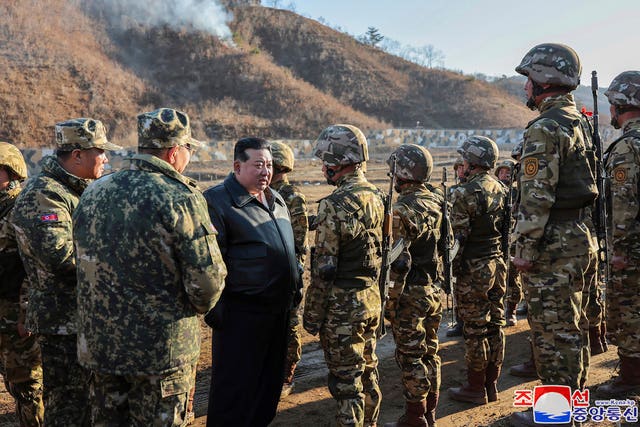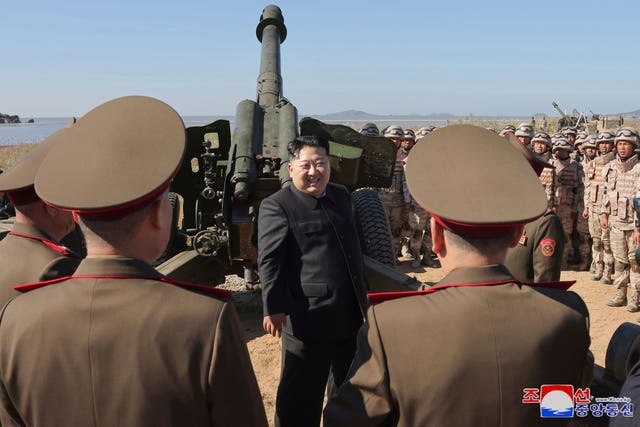North Korea has supplied extra artillery systems to Russia, says South Korea
Some North Korean troops have engaged in combat, according to security sources.

North Korea has supplied additional artillery systems to Russia to support its war efforts against Ukraine, South Korea’s spy agency said on Wednesday.
They also said some of the thousands of North Korean troops deployed in Russia have engaged in combat.
The South Korean assessment came after Russia warned on Monday that US President Joe Biden’s decision to let Ukraine strike targets inside Russia with US-supplied longer-range missiles adds “fuel to the fire” of the war.
US officials said Mr Biden’s decision was triggered almost entirely by North Korea’s entry into the war.

In a closed-door briefing at parliament, the National Intelligence Service (NIS) said North Korea exported 170mm self-propelled guns and 240mm multiple rocket launch systems to Russia, according to Lee Seong Kweun, who attended the meeting.
Mr Lee told reporters the NIS assessed those weapons are a type of artillery the Russian military does not operate so North Korea likely dispatched personnel to teach the Russians how to use them and handle their maintenance.
Last week, Russian Telegram channels and other social media posts published photos apparently showing North Korean’s Koksan 170mm self-propelled guns being moved by rail inside Russia.
The Financial Times, citing Ukrainian intelligence assessments, reported on Sunday that North Korea in recent weeks sent some 50 domestically produced 170mm self-propelled howitzers and 20 240mm multiple launch rocket systems to Russia.
The artillery systems are the latest conventional weapons that North Korea is believed to have provided to Russia as the two countries are sharply expanding their military cooperation in the face of separate confrontations with the US and its allies.
Last month, the NIS said that North Korea had sent more than 13,000 containers of artillery, missiles and other conventional arms to Russia since August 2023 to replenish its dwindling weapons stockpiles.
During its Wednesday briefing, the NIS said an estimated 11,000 North Korean soldiers in late October were moved to Russia’s Kursk region, where Ukrainian troops seized parts of its territory this year, following their training in Russia’s northeast, Mr Lee said.

He cited the NIS as saying the North Korean soldiers were assigned to Russia’s marine and airborne forces units and some of them have already begun fighting alongside the Russians on the frontlines.
The US, Ukraine and others have similar estimates on the size of North Korea’s troop deployment. They say the North Korean soldiers arrived in Russia in October and that some of them have since engaged in combat in the Kursk region. Observers say North Korea’s participation in the almost three-year war threatens to escalate the conflict.
Park Sunwon, another lawmaker who was present at the NIS meeting, made similar comments on the briefing. He said the spy agency could not provide an assessment on possible North Korean casualties.
Moscow said on Tuesday that Ukraine fired six US-made ATACMS missiles at Russia’s Bryansk region, in what would be Kyiv’s first use of the weapon inside Russia.
Ukraine’s General Staff did not confirm whether the weapon was used, but said the armed forces struck an ammunition warehouse in the Bryansk region, which neighbours Kursk and was likely supplying Russian forces fighting there.
Since the first year of the war, Ukrainian leaders have lobbied Western allies to allow them to use advanced weapons to strike key targets inside Russia.





